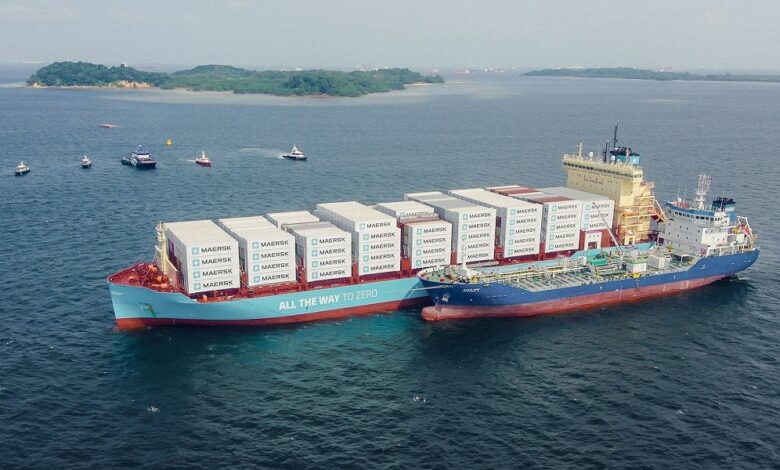Maersk sets new bar with shipping’s first climate target validation

AP Moller-Maersk has achieved another industry first, having validated its decarbonisation targets to be in line with the Paris Agreement’s goal to hold the global average temperature increase at 1.5C above pre-industrial levels.
The Danish shipping and logistics group has seen its goals verified by the Science Based Targets initiative (SBTi) – a group that has become the go-to judge of corporate climate targets globally.
Maersk said the initiative established by several climate groups, including the World Wide Fund for Nature and the United Nations Global Compact, approved its 2030 targets and its goal of reaching net zero greenhouse gas emissions by 2040.
The world’s second-largest liner is aiming for a nearly 35% reduction in its own scope 1 emissions by 2030, as well as close to 22% in scope 3 within the same timeframe. For 2040, the company is looking to reduce absolute scope 1 and 2 emissions 96% by 2040 and absolute scope 3 emissions by 90% within the same timeframe.
Maersk has been committed to setting climate targets in line with science and guidance from SBTi since 2019 and, in 2022, submitted its near- and long-term targets to reach absolute reductions after SBTi published the guidelines for shipping the same year.
Maersk said that today, almost 60% of its top 200 customers have committed to or set science-based targets, including their supply chains. For its own operations, the company highlighted the importance of green fuels and continued improvements in fuel efficiency, while solutions across the supply chain “require engagement and close collaboration with suppliers”.
The Copenhagen-based shipping giant was the first to sign up for methanol-fuelled newbuilds in 2021 and also to pioneer methanol dual-fuel retrofits, setting the stage for others to follow suit.
“We are committed to do our share to reach these targets, but we cannot do it alone. To succeed, we are dependent on and working with the ecosystem that we are part of, including customers, suppliers, industry peers and regulators. Importantly, there is a need for global regulations from the International Maritime Organization (IMO) to close the price gap between fossil and green fuels to secure a level playing field,” said Rabab Raafat Boulos, chief of operations at Maersk.

The “commitment” of a Corporation to “set targets” for “Validation” by a 3rd Party that copies “emission criteria”, may sound good in the naive Shareholders’ ears for their Corporation management… Besides, it meets the Corporation’s Marketing objectives towards the… Financial sector on one hand, and for the “Traders’ wishes” on the other, for different objectives and reasons… No doubt, all of the objectives having hard-core Commercial targets rather than pledging for “Zero-targets”.
The question is, how many targets set since the “Paris Agreement” have been realized by the Shipping sector working hand-in-hand with the Offshore Oil and Gas sector that guarantees the “cheapest way” of transportation of the worldwide traded “Fossil Fuels”, “dug out” in the planet from its oceans to its poles… Fossils being in Abundance, which are due for burning beyond 2040…
Lastly, the Technology for the use of optional alternative fuels for the operation of the Shipping not only exists but it is already applied theoretically (i.e. without the USE of alternative fuels). Does anyone set targets on the worldwide consensus for the development of the alternative fuel quantities and the infrastructure of their sustainable supply for bunkering the needs of ships that are, or they’re getting ready to use these options of alternative fuels?